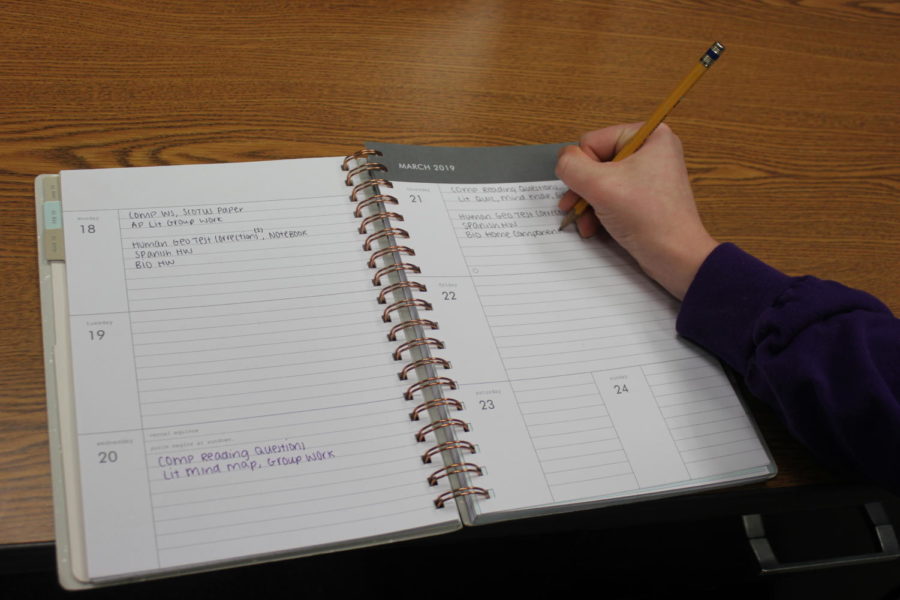Pressure to be Perfect
High expectations and pressure to “do it all” are having a negative impact on the mental health and well being of high schoolers
In today’s world, it’s not enough to be a B student, or to play one sport or be involved in one club. Students are expected to be involved in every sector of school life, and to get high test scores and good grades as well. This, students are told, is how they’ll get into “good” colleges and reach their higher goals. While many parents and teachers believe that these high expectations will encourage students to achieve new heights of success, this intense pressure can be detrimental to the mental health and well-being of high schoolers.
A study by the American Psychological Association found that teenagers have stress levels almost equal to adults, and during the school year, these levels rise above adults. As well as reporting high stress levels, teens also reportedly disturbingly high levels of feeling overwhelmed, depressed, and tired.
Many of the students at Potomac Falls feel the weight of this pressure. Sophomore Kaitlin Olia sometimes gets overwhelmed trying to balance her three AP courses with her athletics and other school activities.
“In high school, there’s a lot of pressure to fit in, to get good grades, and to be involved in the school community. I think [pressure] makes students stressed and makes them not want to come to school and do well in school,” said Olia.
As well as feeling the demand for perfection from teachers and parents in academics, students also have to deal with challenges in a new arena that generations before didn’t face – social media. Peers have a strong influence on high schoolers, and social media creates an atmosphere of often unhealthy competition and comparison. High schoolers feel pressured to present a perfect image of themselves online, all in an effort to fit in and keep up.
The challenges of modern high schools and the rise of social media culture can affect any and every high schooler, but for those with mental illness, the problem is even more severe. NPR has referred to mental health crises in schools as a “silent epidemic”, and according to the U.S. Centers for Disease Control and Prevention, one in five American children ages 3 to 17 suffers from a diagnosable behavioral, emotional, or mental disorder. Although there is no concrete evidence to prove that an increase in mental illness over the last few decades is caused by increased parental pressures or the rise in social media, some studies have shown a correlation between mental illness and these factors. Psychologist Jean Twenge found that adolescents who spent more time on screen activities such as using a smartphone or social media were more likely to have symptoms of depression.
The typical culture of modern high schools focuses on achievement over well-being, and for students struggling with mental illness, this creates an even more dangerous environment. Schools and parents demand that education takes number one priority in a student’s life, and this often leaves mental health in the dust. Students sacrifice sleep to cram for tests and exams, and suffer from increased stress when they can’t keep up with the heavy workload of their classes. Junior Natalie Swarm believes that the expectations of school can cause students to struggle, even though they may not be intended to.
“I don’t think that [parents and teachers] purposefully try to put school ahead of mental health, but sometimes how much students have to do to get into college and have a stable life, it puts a lot of stress on students, even though it’s not directly what they are trying to do,” said Swarm.
Although there is no way to completely eliminate the stress of school, there are ways to combat the negative effects. According to a study by the Center for Health and Health Care in Schools, students who receive positive behavioral health intervention see improvements on a range of behaviors related to academic achievement. This includes strengthened problem-solving skills and better time management, as well as improved grades and a decreased rate of school absences and suspensions. By increasing mental health support services, schools can have an overwhelmingly positive impact on high schoolers and fight against the rising epidemic of mental health problems.


